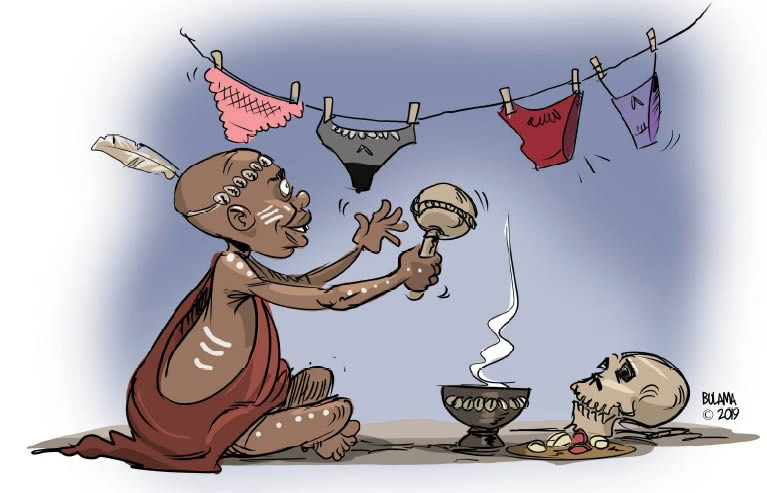late July 2023, I was commuting within Abuja when I heard a lady’s sharp, piercing voice screaming, “Na your papa be mumu!”
Let’s call her Temitope or Tope for short.
If looks could kill, the police would march Tope from the bus stop to a nearby station for murdering a taxi driver that Wednesday morning. With eyes misty with frustration and cheeks red from adrenaline, she couldn’t understand why she must now pay N450 for a journey that once cost N300.
As the Nigerian that I am, even though I could hear her heated exchange with the driver, I turned down the volume of Brandon Heath’s Blue Mountain playing in my ears just to see her clearly.
You could see the look of “Is this a joke?” when the driver handed her N50 as the change from the N500 note she gave him. She gazed at the green taxi speeding off as though it left with a part of her.
Tope is only one of millions of Nigerians feeling the aftershocks of President Bola Tinubu’s inaugural declaration that “subsidy is gone!” Fast forward to seven months later, she must be paying way more than N450 for the same daily commute if she is fortunate to remain employed. At the market, she is likely buying garri for thrice the pre-July price. When she complains, the garri seller would probably link the price hike to the abysmal naira-dollar exchange rate, even if the two share no correlation. And maybe she has made peace with the rising cost of everything!
I saw a recent video of a woman who identified as an Iyaloja lamenting the biting economic crunch at a market square. “This sufferness e too much. Since when my papa born me, I never buy garri N2000. But now, one paint (measure) of garri na N2000,” she screamed.
Prices of essential commodities, which rose slowly in the early days of the post-subsidy era, have increased exponentially. Sadly, wages haven’t grown at the same pace, if they rose at all. Most Nigerians are left with hardly any ‘shi shi’ after spending on necessities like food, transportation, shelter and so on. It made sense why, last week, protests erupted in several states.
On Monday through Tuesday, angry youths and women took to the streets of Minna, the Niger State capital, and Kano to protest the rising cost of living. Similar protests also erupted in Osun State in the South-West.
In Niger, a group of women reportedly blocked the ever-busy Minna-Bida Road at the famous Kpakungu roundabout, and called on the Tinubu administration to address the challenge of “hunger in the land.” The mob deflected attempts to quell the protest by security operatives, who fired tear gas canisters into the crowd and arrested others.
Sensing the currents, President Tinubu, who was in faraway Paris, convened a special presidential committee on emergency food intervention chaired by his chief of staff, Femi Gbajabiamila. The committee was to introduce immediate measures to alleviate the suffering and forestall a total breakdown of security. Tinubu himself returned to Abuja that night.
I observed an unusual movement at the Aso Rock Villa that Tuesday evening as the National Security Adviser, ministers of Information and Agriculture, and other top government officials trooped into Gbajabiamila’s conference room.
Curious, I kept asking about what was happening. Why are they here? What is the main agenda of this gathering? I tried to piece the dots, scribbling details on my mobile phone to make up a story.
For the two ensuing days, the committee met at the Villa until the Information minister, Mohammed Idris, announced the release of 102,000 metric tons of various grain types from the Strategic Grains Reserves nationwide and the Rice Millers Association of Nigeria. Idris explained that the grain rain would cancel out the hoarding tendencies of some farmers leveraging the “man-made scarcity” for massive profits.
“The first (outcome) is that the Ministry of Agriculture and Food Security has been directed to release about 42,000 metric tons of maize, millet, garri and other commodities in their strategic reserves so that these items will be made available to Nigerians.
“We have held meetings with the Rice Millers Association of Nigeria…and they’ve told us they can guarantee about 60,000 metric tons of rice. This will be made available and we know that is enough to take Nigerians for the next one month to six weeks; perhaps two months.
“The whole idea is to crash the cost of these food items. And these are measures that will happen immediately…These are all measures taken to bring down the cost of food immediately,” said the minister. He also revealed that the administration would resort to importing necessary supplies to augment shortages observed after the release of the food items.
But how much grain can feed Nigerians? And for how long? Beyond (the promise of) releasing food, Nigerians want accountability! They will never forget the ugly 2020 saga where pandemic relief items meant for the people remained locked away as hunger reigned. This explains why X user, Joseph Shoremekun, tweeted: “Beyond the release, the government equally needs to have a mechanism to ensure that the released items are not hijacked and diverted. We must ensure that policies are implemented to deliver the desired result.”
Another user named Omhotayor Dahare remarked, “I hope what happened to the pandemic own will not happen this time.” At the same time, Citizens for Ethical Governance queried, “We love to treat symptoms instead of killing the causative agent. Will this intervention bring down food prices till next year? The government needs to deal with what is causing food inflation and stop this tokenisation.” Perhaps the only succour for Nigerians is football.
When you play a penalty kick with the frustration of 200 million people behind you, you dare not miss! Kelechi Iheanacho and his three other comrades understood this when they booted out South Africa at the AFCON semi-finals last Wednesday. They did so knowing that football is the only ice easing the economic pains of many citizens.
However, when they win the tournament later today (Sunday), we hope the 2016 episode does not repeat itself. For context, Nigeria’s Super Falcons won the CAF African Women’s Cup of Nations in Cameroon when they beat the host country to claim the trophy.
But that joy soon turned sour when news broke that the victorious girls confiscated the trophy until the government offset the N238.05m accumulated bonuses it owed them. They even threatened to protest on the streets of Abuja if the then-President Muhammadu Buhari failed to address their grievances at the next Federal Executive Council meeting.
Possibly not wanting such a show of shame on his government, President Tinubu, on January 7, barely a week before AFCON kicked off, cleared N12bn worth of outstanding payments owed the Super Eagles and other sporting teams of the country. The payout includes clearing the senior national team coaches’ salaries running up to 15 months, payments of allowances and promises due to the senior national teams, females and the Under-20 national team.
For all I know about sports, few motivations are stronger than money. Nevertheless, Nigerians want this victory!
For fear of writing too long a letter, I have reserved my story on the “presidential bats” for next Sunday. Though resident in the seat of power since the Sani Abacha days, these nocturnal mammals appear more active lately. Does it have anything to do with the President’s initials? I’ll gist you more next week. Ensure you get a copy of the










